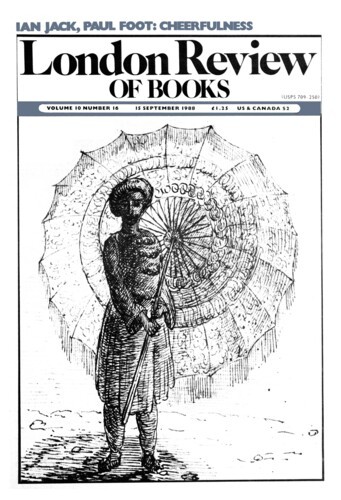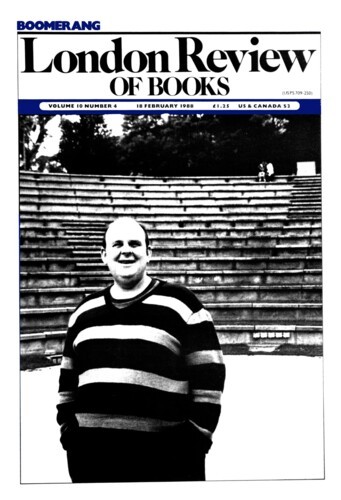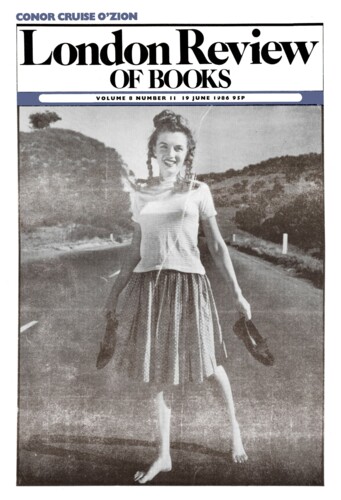Cheering us up
Ian Jack, 15 September 1988
In the opening pages of Thomas Mann’s novel, Confessions of Felix Krull, Confidence Man, the hero debates a question which has always worried him: which is better for the careerist, to see the world small or to see it big? The small view has its attractions. Great statesmen and empire-builders must see the world this way, Krull thinks: like a chessboard, with human pieces that can be manoeuvred coldly and boldly as the player rises above the mass of mankind. On the other hand, such detachment might just as easily lead to indolence and indifference – ‘to one’s doing nothing at all’. Moreover, a coolness of attitude might put other people off and prevent ‘any possible success you might have achieved involuntarily’.’



